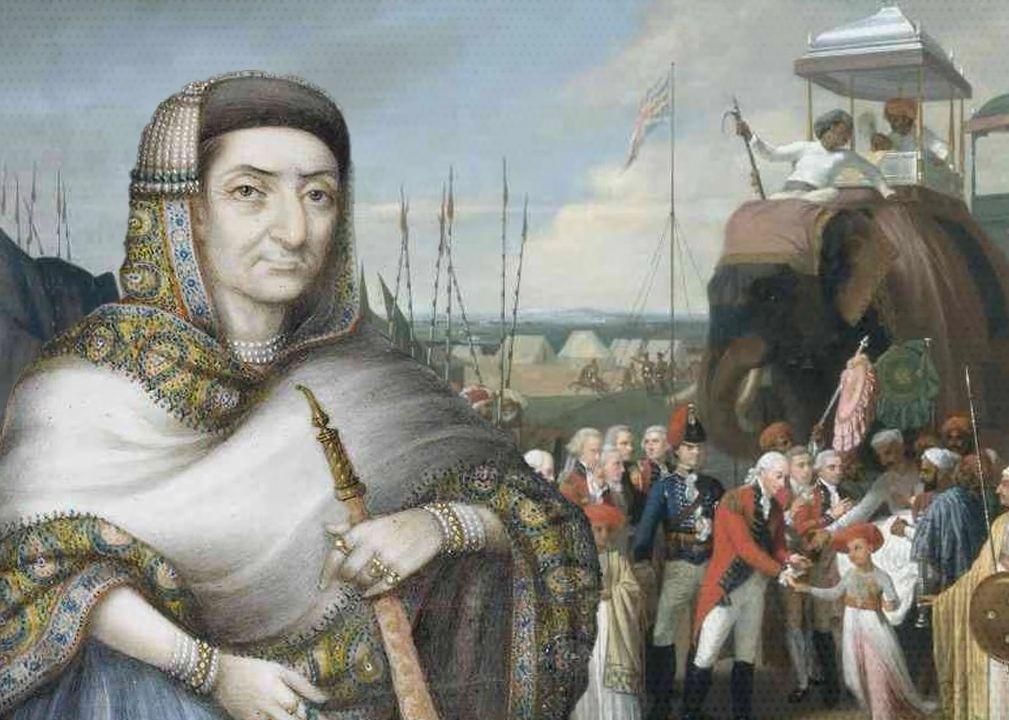
Women Entrepreneurs in Indian History: Begum Samru & Jibhabu
India, a land of rich cultural heritage and entrepreneurial spirit, has seen its fair share of trailblazing women who have defied societal norms to make a mark in the world of business and commerce. Among these pioneering women, Begum Samru and Jibhabu stand out as two remarkable entrepreneurs who navigated the uncharted waters of the 18th and 19th centuries to build lasting legacies.
Begum Samru: The Diplomatic Entrepreneur
Born in 1753 in the small town of Avadh, Begum Samru, also known as Jeanne Marie Clémence Villeminot, was a French woman who rose to become one of the most powerful women in India during the 18th century. Her journey began when she married a French officer, Walter Reinhardt Sombre, who was serving in the army of the Rohilla Afghans. After her husband’s death, Begum Samru inherited a 621-square km estate in Sardhana, which was a strategic location between the British and the Rohilla kingdoms.
To protect her estate and maintain her power, Begum Samru employed her exceptional diplomatic skills to navigate the complex web of alliances and rivalries between the British, the Rohillas, and the Mughals. She cultivated relationships with influential figures, including the British Resident at Lucknow, and even offered her services as a mediator in disputes between the British and the Rohillas.
Begum Samru’s diplomatic prowess allowed her to maintain her independence and protect her estate, which became a significant center of trade and commerce. She was known for her fairness and wisdom, and her ability to resolve conflicts through negotiation and compromise earned her the respect of her contemporaries.
Jibhabu of Gujarat: The Negotiating Entrepreneur
Born in the early 19th century in Gujarat, Jibhabu was a woman from a family of merchants who had a long history of trading with the East India Company. When the East India Company began to exert its influence over Gujarat, Jibhabu saw an opportunity to restore her family’s land revenue business by negotiating with the Company.
Jibhabu’s negotiation skills were put to the test when the East India Company sought to establish its dominance over Gujarat. She recognized that the Company’s intentions were to exploit the region’s resources and undermine the local economy. Jibhabu knew that if she could negotiate a favorable agreement, she could protect her family’s business and maintain their influence in the region.
Through a series of meetings and negotiations, Jibhabu was able to secure a deal that allowed her family to continue their land revenue business, albeit under the supervision of the East India Company. Her negotiation skills and strategic thinking earned her the respect of the Company’s officials, who recognized her as a shrewd and capable businesswoman.
Legacy of Begum Samru and Jibhabu
The legacies of Begum Samru and Jibhabu are a testament to the power of entrepreneurial spirit and strategic leadership. Both women defied societal norms to build successful businesses and maintain their independence in a male-dominated world.
Begum Samru’s diplomatic skills and strategic thinking allowed her to maintain her power and influence in a region that was torn apart by conflict and rivalries. Her ability to navigate the complex web of alliances and rivalries between the British, the Rohillas, and the Mughals earned her the respect of her contemporaries and left a lasting legacy in Indian history.
Jibhabu’s negotiating skills and business acumen allowed her to restore her family’s land revenue business and maintain their influence in Gujarat. Her ability to secure a favorable agreement with the East India Company earned her the respect of Company officials and left a lasting legacy in the region.
Conclusion
Begum Samru and Jibhabu are two remarkable women who defied societal norms to build successful businesses and maintain their independence in a male-dominated world. Their legacies serve as a reminder of the power of entrepreneurial spirit and strategic leadership, and inspire future generations of women entrepreneurs to follow in their footsteps.
As we celebrate the achievements of these pioneering women, we are reminded that entrepreneurship is not limited to men, and that women have played a significant role in shaping the course of Indian history. Their stories serve as a testament to the importance of education, skill-building, and strategic thinking in achieving success, and inspire us to continue to empower women entrepreneurs to build a brighter future for themselves and their communities.
Source: https://ascendants.in/business-stories/pioneering-women-entrepreneurs-history/






